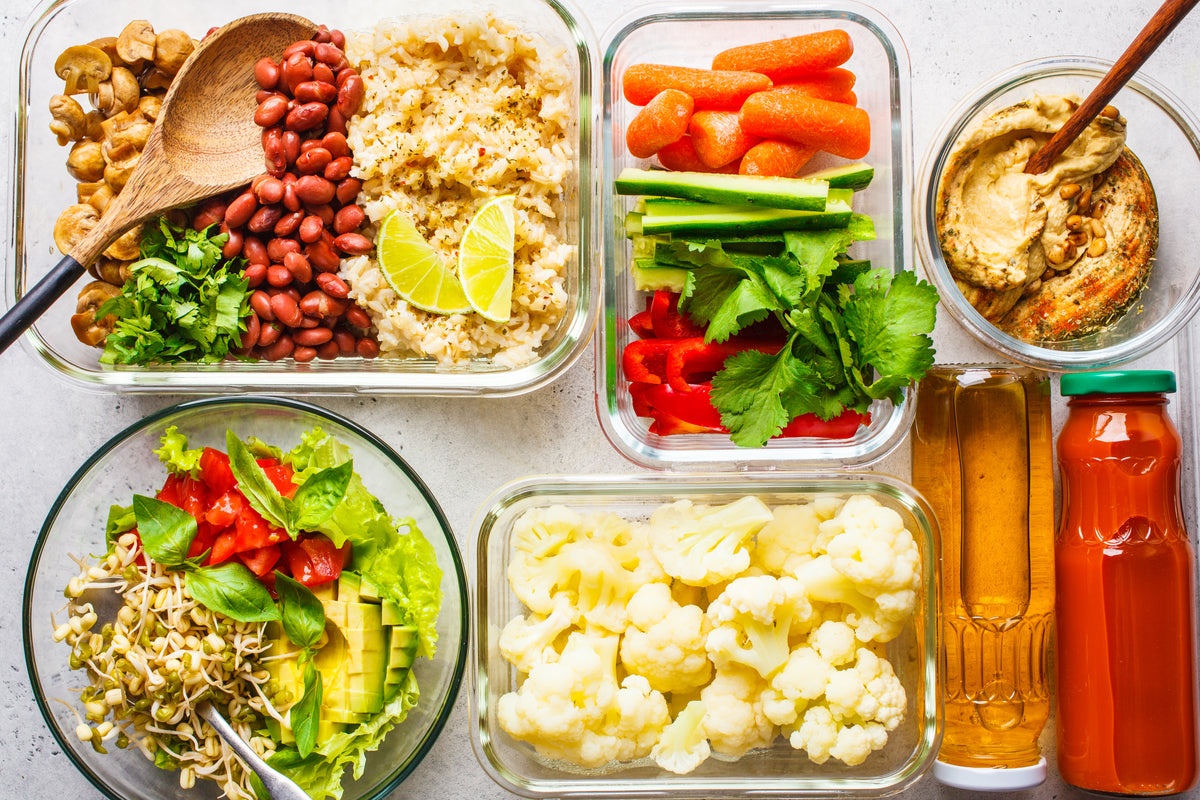
The effects of too much sodium are widely recognized. The amount of sodium that a person consumes directly correlates with their risk of suffering from hypertension and cardiovascular disease. It is important to reduce sodium intake by limiting salty snacks and reducing the amount of salt added to meals. Limiting your intakes of processed and fast food is important in addition to reducing your dietary sodium intake. Listed below are some strategies for reducing sodium consumption:
Increased sodium levels in the bloodstream can increase water retention. This causes your blood volume to increase, which in turn causes it to expand. Blood vessels that are too saturated with sodium can stretch and build up plaque, which makes them vulnerable to heart disease. Also, excessive sodium can cause you to feel bloated. Over-salinization can have serious consequences for your health.

Too much sodium can cause serious health problems. Too much sodium can lead to problems in your health. Studies have linked diets high in sodium with an increased risk of high blood pressure. It is important to limit sodium intake, even though it is necessary for nerve and muscle function. Your daily intake should not exceed two thousand milligrams.
Too much sodium can cause heart problems and brain damage. A high sodium diet in America is associated with high risk of cardiovascular disease. The Centers for Disease Control and Prevention recommend Americans do not consume more that 1,500 milligrams per day. For most people, this should be less than two thousand mg per day. However, there are foods with higher sodium levels than others.
It is important not to forget that excessive sodium can cause problems in your cardiovascular system. In fact, it can have many health benefits. People with high blood pressure need to limit their sodium intake at 2,000 mg/day. Also, lower blood pressure has a number of benefits. Reducing salt intake will also lower the risk of heart disease. This is just one example. If you want to enjoy the benefits of a healthy lifestyle, you must limit sodium.

The number of sodium-related deaths continues to rise. High sodium levels are increasing in people with high blood sugar and heart disease. The risk of developing heart conditions can be reduced by reducing sodium intake. Avoid salty foods. You also need to avoid processed foods. You should rinse canned vegetables and legumes before they are eaten. You don't have to wash vegetables or legumes before you eat them. Instead, rinse them.
FAQ
Are There Any Benefits to Yoga?
Yoga has been popular since ancient times. It is now very popular among celebrities and even ordinary people who want to look fit and healthy.
Yoga is great because it stretches your muscles while strengthening them. Yoga is also great for calmening your mind and relaxing.
The main difference between yoga and other forms of exercise is that yoga focuses on breathing techniques.
Practice a variety of poses to increase your flexibility and balance.
How To Get Rid Of Belly Fat Fast?
There are many methods that can help you reduce your belly fat quickly. One way is to eat less food and drink plenty of water.
Running and swimming are two other ways to boost your metabolism.
To quickly reduce belly fat, avoid sitting too much. Stand up often throughout the day. This will help to burn more calories.
If you've tried all the methods and are still struggling with belly fat, there's another option.
This involves using a device called a belt. The belt fits around your waist and is tightened when you sit down.
You will feel more comfortable and be able to move around. This encourages you to burn calories and decrease your belly fat.
Do I have the obligation to exercise every day or just on occasion?
No! You should do at least 30 mins of moderate-intensity activity 5 days per week. This could be walking fast enough so you feel slightly out breath or cycling hard enough to sweat.
What is the best way to increase muscle mass?
Two main types of exercises are required for building muscle mass. These are called compound movements and isolation. While compound movements focus on a single muscle, isolation exercises are focused on specific muscles.
You can improve your workouts by choosing exercises that challenge all major muscle groups. This ensures that each session is challenging.
An app called MyFitnessPal allows you to keep track of everything. It can track everything from calories burnt to weight lifting. You can also make custom meal plans according to your goals.
Statistics
- Cardmembers earn 5% Back at Amazon.com with a Prime Credit Card. (amazon.com)
- The PRS enabled risk stratification for overall prostate cancer and lethal disease with a four-fold difference between men in the highest and lowest quartiles (HR, 4.32; 95% confidence interval [CI], 3.16-5.89). (pubmed.ncbi.nlm.nih.gov)
- 10 pounds in a month is likely during a lean bulking phase, especially for beginners. (muscleandstrength.com)
- An estimated calorie range for moderately active adult males falls between 2,200 to 2,800 calories per day, depending on age. (eatright.org)
- Are You One of the 20% of Guys (mh.co.za)
External Links
How To
What nutrients does a man need daily?
Daily nutrition is essential for men's healthy growth. Vitamins, minerals, vitamins, nutrients, carbohydrates, fats and fiber are all essential for the body.
The male body also requires specific nutrients at different times throughout the day. Your body makes hormones, antibodies and enzymes when you are asleep. When you awake, protein is used by your body to build muscles or repair damaged tissue.
Your body will burn fat at night and store the extra energy as a form of glycogen. Your body has less energy but still requires enough nutrients during this time. You might have an occasional snack during the night if your stomach is feeling hungry.
You need to eat enough carbs and protein when you exercise. If you exercise hard, you might feel muscle soreness.
To prevent this, you should eat carbs as well as protein within the first two hours after training. Your body will breakdown stored glycogen and provide you with glucose for energy.
You must also eat protein right after you finish your workouts. This prevents muscle tissue from being broken down while you are sleeping.
Your body can produce lactic acid during intense physical activity. It is a form of lactic acid that builds up in the bloodstream. This causes fatigue. Eat foods high in carbohydrate, such as fruits, vegetables, to avoid this.
Carbohydrates are a good source of energy to help you recover from hard exercise.
Your diet may include lean meats like fish, eggs, milk cheese, yogurt or beans as well as lean proteins such as fish, eggs, egg yolks, cheese, yogurt, bean, peanuts and seeds.
All of these foods contain high-quality protein. Protein helps to repair and grow muscles. It provides amino acids that your body needs in order to produce sexhormones and testosterone.
You also need enough dietary fats to maintain good skin, hair, nails, and joints. Healthy men need to consume between 20%-35% of their total calories from fat.
Fat protects your heart from cancer and keeps it strong. It is essential for proper brain function.
You can get the majority of the fats that you need from vegetable oils such as soybean oil.
These oils are rich in monounsaturated essential fatty acids (MUFAs). MUFAs help lower cholesterol and reduce inflammation. They protect your cells against free radical damage.
Saturated fats (SFAs), are found mainly in animal products such as meat, milk products, and butter. SFAs are known to raise LDL ("bad") cholesterol and raise triglycerides. They can also increase weight and reduce belly fat.
Polyunsaturated fats (PUFAs) are found in plant-based sources like vegetable oils, nuts, seeds, and grains. PUFAs reduce inflammation and improve cardiovascular function. They help to control blood sugars and cholesterol.
Erectile dysfunction can often be a problem for men who have low HDL ("good") levels of cholesterol. Consuming high amounts of saturated fats can increase bad cholesterol and lower good cholesterol.
Men who eat large quantities of red meats or pork may develop prostate problems. When heated, nitrates are converted to nitrosamines. These compounds can cause cancer.
Most processed meats have nitrites and harmful chemicals. You should avoid them.
According to the American Heart Association, you should limit your consumption of red meat to no more that 2 meals per week. Instead, choose poultry or fish, beans, tofu and whole grain bread.